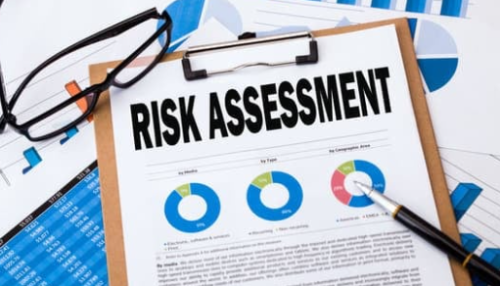Table of Contents
All businesses depend greatly upon their business-to-business (B2B) relations. However, SMEs usually value their partnerships more, as they’re typically more vulnerable during their daily operations.
Larger conglomerates may have time and resources to find replacement suppliers if things fall through, whereas an SME may suffer more damaging consequences of any shortcomings. If you’re running an SME, you’ll understand that your suppliers keep things moving in the right direction and provide all-important security for yourself and your colleagues.
Therefore, building better relations with these entities is essential. The stronger the working relationship, the more mutually advantageous these situations can be for all parties.
How Can SMEs Build Better Supplier Relations?
How can this be achieved? Read on for a list of ways your SME can build better supplier relations.
Develop Your Supply Chain
 Obviously, the responsibility of your supply chain doesn’t lie squarely with your suppliers. If your firm has inefficient processes, your first task is resolving them to benefit your supplier partnerships.
Obviously, the responsibility of your supply chain doesn’t lie squarely with your suppliers. If your firm has inefficient processes, your first task is resolving them to benefit your supplier partnerships.
Delays on your side can limit the potential of your supplier partnerships. If these situations persist, your SME may be seen more as an unlimited liability rather than an opportunity for further trade. Should you not work through your procured goods fast enough, it will lead to a backlog and stalled trade.
Of course, issues with your supply chain are perhaps somewhat inevitable at some stage. SMEs are often subject to the occasional setback. When these instances occur, it’s important to communicate with your suppliers as readily as possible. You should also be open to heeding their suggestions and collaborating on solutions. These circumstances affect them, so demonstrating that you respect them is key.
Early engagement is also key, preventing potential problems before they ever occur. The NHS follow a similar line of thought, working closely with its suppliers and associated SMEs to create a wider network of efficiency. Try to see the bigger picture and adopt a team-oriented spirit around your supply chain.
Hasten Important Payments
 Some firms think about what their supplier can offer them. However, you must hold up your end of these deals too, and go the extra mile where you can.
Some firms think about what their supplier can offer them. However, you must hold up your end of these deals too, and go the extra mile where you can.
You may be able to improve payment processes. The faster your suppliers receive their money, the more they’ll understand how much you value the partnership and your word. Speed creates security, which in turn creates confidence in your business, leading to more trust in your SME later down the line.
Moreover, paying your suppliers overseas on time is also vital and may require alternative strategies. Silverbird can help with this, as they correctly advise that conducting these transactions through an online payment provider or using a card payment machine is better than a traditional high street bank.
The latter services may only work with firms of a certain stature and otherwise have a lot of red tape slowing things down. So, by hastening these payments, you’re providing better partnership conditions for your suppliers.
Supply companies have their own set of challenges to overcome. It’s important to be mindful of those circumstances and do your part to help where possible. Something as simple as receiving payment for customers on time can make all the difference to their prospects. Others may not come through for them, but your SME will, and it will be remembered.
Work with Local Services Too
Some overseas suppliers may be the only option to secure the goods you need for certain aspects of your business dealings. However, there may also be room to incorporate more local talent into your procedures as well.
You may be able to establish rapport with a supplier near you more easily. They’ll appreciate fast access to trade, and they’ll also be reduced delivery fees and logistics to enjoy too. You may also be more likely to have connections in your network and perhaps have more instances of common ground if you’re based in the same area.
Furthermore, local businesses are perhaps more at risk than others during the cost-of-living crisis. Your support to them could be invaluable, and they may be willing to polite a slew of additional services to let you know how much your custom means to them. While there are no guarantees, a strong bond can be created with local trade during times of strife.
Remember, your suppliers shouldn’t be exclusively local if you do need to source goods from overseas. Still, diversity can be healthy for an SME, and establishing strong links near and far can only be advantageous.
Conduct Risk Assessments
 Risk assessments don’t always need to be internal. As mentioned above, suppliers face challenges, and it’s important to ascertain what they are and what they could mean for your business.
Risk assessments don’t always need to be internal. As mentioned above, suppliers face challenges, and it’s important to ascertain what they are and what they could mean for your business.
Unfortunately, though numerous events are unfolding related to the supply chain crisis, it’s important to keep up with them. That way, you may be able to avoid betting on losing horses and instead channel your time and energy into the suppliers more likely to have longevity in their processes. It might sound ruthless, but you can’t develop better supplier relations with those destined to fade soon.
Conducting a risk assessment on your interested suppliers is a good idea. There are many questions you can pose and answer here. Are there risks around spending with them? Do they offer niche services not many of your peers would be interested in? Have they overcome bottleneck scenarios with the supply chain before now?
It’s also important to conduct risk assessments to decide what’s off-putting and what isn’t. Depending on your line of work, not all of a supplier’s challenges may affect the service they provide for you. So, defining the risk parameters here is an important step instead of getting jittery without real cause (which will jeopardise supplier relations).
Reducing Supplier Numbers
Granted, you can’t build better relations with the suppliers you choose to let go. However, focusing your attention on a smaller number of them may give you more time and resources to establish a stronger rapport.
There are multiple ways you can approach things here. Reducing supplier numbers associated with your firm can be done in the name of:
- Competitive tendering – Encouraging the suppliers to compete against each other, bidding for contracts related to your firm.
- Service reengineering – Radically redefining company processes to cut costs, potentially including renegotiating with your suppliers.
- Service consolidation – Mostly self-explanatory, this strategy involves reducing supplier numbers to streamline logistics and reduce spending.
It might seem difficult to cut ties at first. When negotiating with those left for more promising service conditions, it gives you more leverage. You’re proving that you believe in those suppliers and are willing to place more responsibility and bigger business on their shoulders.
Additionally, it’s important to be tactful if you do decide to part ways. Express gratitude for all the positives the B2B dynamic brought to your SME. Regrets should be heartfelt and sincerely expressed.
Conclusions
The purpose of this article was to outline how you can be of service to your suppliers rather than how you can make decisions that solely benefit your SME. Of course, there are some contradictory remarks in that difficult choices may need to be made, but even those can be conducted to benefit more than just your firm. Suppliers need to see that you consider their needs and aren’t ignorant of their circumstances. That understanding could fuel a more prosperous working relationship between you.



